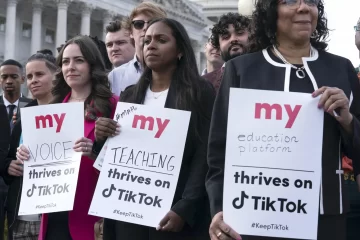
With the forthcoming general elections and electrifying conspiracy theories budding from constituency to constituency regarding the death of the Secretary General of the UDC party, Mr. Gomolemo Motswaledi, and His Excellency’s reluctance to act with regard to the Director General of the Directorate of Intelligence and Security, Mr. Isaac Kgosi; much seems to be troubling with Botswana’s political system. The real question is though, with the imminent political tension prevalent in Botswana, how long can we hold on to the title of ‘best governed democracy in Africa’? Botswana itself is starting to question this. The youth are acting and its voice is piercing- and the classically conservative and politically disillusioned state is rising from the ashes, no longer apathetic. However, what does this all mean for our great nation?
Not so long ago I had a riveting discussion with my friend who is also a vehement lover of politics and its tantalizing conspiracies). We appeared to have reached an impasse regarding the current leadership and the future of this country. He adamantly believes that the Botswana Democratic Party has exhausted its leadership and we are now moving towards-if we haven’t already-a tyrannical dictatorship with the current presidency by His Excellency Lieutenant General Seretse Khama Ian Khama. As much as there were some coherent arguments structured here, I nonetheless differed on the direction I feel we should be steering towards: for him, it was a complete non-violent social and economic revolution. He argued that Botswana’s economy is crippled by its welfare social policies, and advocated more economic independence on the private sector. He maintained his view on the current system being more concerned with “wealth accumulation than creation”. Hence the need for fresh new ideas, rather than outdated policies fostered by an outdated generation of politicians.
Now of course, there were a lot of compelling arguments passed, the first one being the restructuring of the national assembly to accommodate thriving youths. There is just a worrying tendency to continually and systematically retain the same figures of power in Botswana. General election after general election we see the same faces. The youth feel shunned, and rightfully so. It is an appalling urban myth that the majority of Botswana’s youth are disenchanted with politics- The UDC Youth are actively becoming more vocal each day- indicating how pressingly we need a robust platform which rigorously engages the youth in the public arena. EDUCATE the young with Politics as a core subject. Let us rejuvenate the political field with a paradigm shift from the old and wise, to the young and passionate.
Secondly, the clash was over Botswana’s economy shifting from the “damaging” paternalistic approach to the more Laissez-faire economics. It was signaled, ever so vividly that the government is battling an idle and complacent society. A dependency culture has emerged from all the amenities which are provided to them by the state. This wasn’t much of a stark contrast with my own observations, however, I did offer caution to the degree of ‘independence’ we want to advocate, citing the flaws in the Thatcherite system. The UK, by the end of Margaret Thatcher’s reign witnessed one of the worst unemployment crises with millions suffering from massive relative poverty. There was visible growth in the divergent gap between the rich and the poor, despite considerable growth in real GDP. Sometimes it is worth noting, a rich country does not reflect a richer nation. Without doubt, there is lack of accountability on all the government schemes granted to the nation, for instance many Agricultural policies (such as ISPAAD, NAMPAAD and ALDEP) often go unaccounted for, leaving many unsuccessful projects and major wastage of state resources. Things need to change. However, I would like to give credit to the Botswana state efforts towards tackling financial illiteracy for the novice entrepreneurs, such as provision of mentorship and financial literacy development programs. This is quite an imperative initiative which affords disadvantaged communities with better prospects , far from the financially decapitating laissez-faires stance.
Another vote of contention was the lack of economic diversification in our country; highlighted by Botswana’s overdependence on the diamond industry. Unquestionably, the mining sector (particularly the diamond industry) generates the largest share of our total revenues. The problem is, these resources are finite and thus have the potential to cease from existence, which would be disastrous for our economy. However, this is not to say that Botswana is just resting on diamonds alone. Botswana is incentivizing. There are major routes to diversify our economy, with infrastructure development being the main focus. The Botswana Innovation Hub-another successful policy upon government efforts to improve the economy: formulation of Ministerial Hubs- and it is hoped that since the De Beers headquarters have moved to Gaborone, and then transport and telecommunication links plus the airport can be revamped. In addition to the developments that come in tandem with this milestone in the mining sector, human resource enhancement is also at the center of state objectives. Yet we still have major energy and water shortage problems which impede the growth of national output, with manufacturing and construction suffering the most from the power cuts: a major setback.
Now you could argue that perhaps what is problematic is that these sectors are partly state owned and that relinquishing ownership to profit orientated private individuals could tackle the x-inefficiency crisis. As much as that may be tempting, we would still have one major problem; these will now operate as pure monopolies. Facing no competition and with a poorly regulated market, prices may hike significantly, which is not surprising considering they have to cover the costs of refurbishing their plants. Now of course, these will be viewed as extenuating circumstances, hence the Competition Commission may well allow the price increment. What this will do is discriminate thousands out of the market, thus exacerbating the already divergent wealth gap. Thus again, neoliberal policies will pose a threat to the economy.
Apart from cherry picking the setbacks in state affairs, it can be argued that more is being done. Yet, two major questions loom; at what pace and what efficacy?
Without formulating a thesis, let me conclude by emphasising the point of pace and efficiency, as much of the complaints have been centered primarily on these two. At national institutions we see senseless delays and to be perfectly frank dire inefficiency and it continues to hamper economic growth. By adopting neoliberal policies, low production is tackled yet with a country already failing to progress due to social disadvantages, the profit generating mindset will do nothing but aggravate this problem. I suggest that the government be more open to alternatives, with a broader consensus based nature rather than adversarial. At the moment, there is a lot of whining and an obvious race-to-the-top-attitude. I employ government, opposition parties, pressure groups, youth, and all relevant stakeholders, to stop with the incessant corruption and power-hungry arrogances and help each other for the prosperity of this great country. Let entrepreneurship stem from the grassroots; which is in our education system and transparency and accountability reign.


